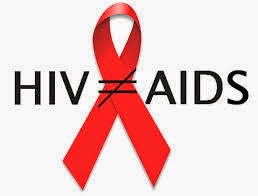
MANILA (Mindanao Examiner / Aug. 31, 2014) – A total of 379 overseas Filipino workers – 334 males and 45 females – have been found with human immunodeficiency virus from January to July this year, the Trade Union Congress of the Philippines said.
The latest figure represents an increase of 23 percent, or 70 cases, versus the 309 OFWs found HIV-positive over the same seven-month period in 2013, according to TUCP president Ernesto Herrera.
Herrera said 378 of the stricken OFWs acquired the infection through sexual transmission, including 152 cases via male-to-male sexual contact.
“There was one case wherein the OFW was an intravenous drug user, and was infected by a tainted needle,” Herrera said.
HIV causes the Acquired Immune Deficiency Syndrome, or AIDS and while the disease that destroys the immune system does not have any known cure, the World Health Organization says “huge reductions have been seen in rates of death and suffering when use is made of a potent antiretroviral regimen, particularly in early stages.”
“The Overseas Workers Welfare Administration, Department of Health and the Philippine Health Insurance Corp. should see to it that every OFW found HIV-positive is able to avail of cost-free Anti-Retroviral Therapy in accredited treatment hubs,” Herrera said.
“We are also urging Malacañang to certify the proposed new AIDS Prevention and Control Law, or Senate Bill 186, introduced by Sen. Miriam Santiago,” he added.
The bill seeks to improve the living conditions of HIV-positive people through greater access to treatment, care and support. It also sets tougher penalties for entities and individuals who discriminate against HIV-positive people as well as those who violate their rights to confidentiality.
An aggregate of 3,017 OFWs with the median age of 34 now comprise 15 percent of the 19,915 cases in the Philippine HIV and AIDS Registry as of July 31, 2014. The Registry began passive surveillance of the disease in 1984.
According to the Registry, some 98 percent of all HIV-positive OFWs, or 2,951 cases, acquired the virus on account of sexual contact. Some 81 percent of all HIV-positive OFWs, or 2,456 cases, are males, and 834 of them, or 28 percent, were infected due to male-to-male sexual contact.
HIV is being spread primarily through sexual contact, predominantly male-to-male sex, and secondarily via needle-sharing among injecting drug users or the transfusion of contaminated blood, according to the Philippine National AIDS Council.
